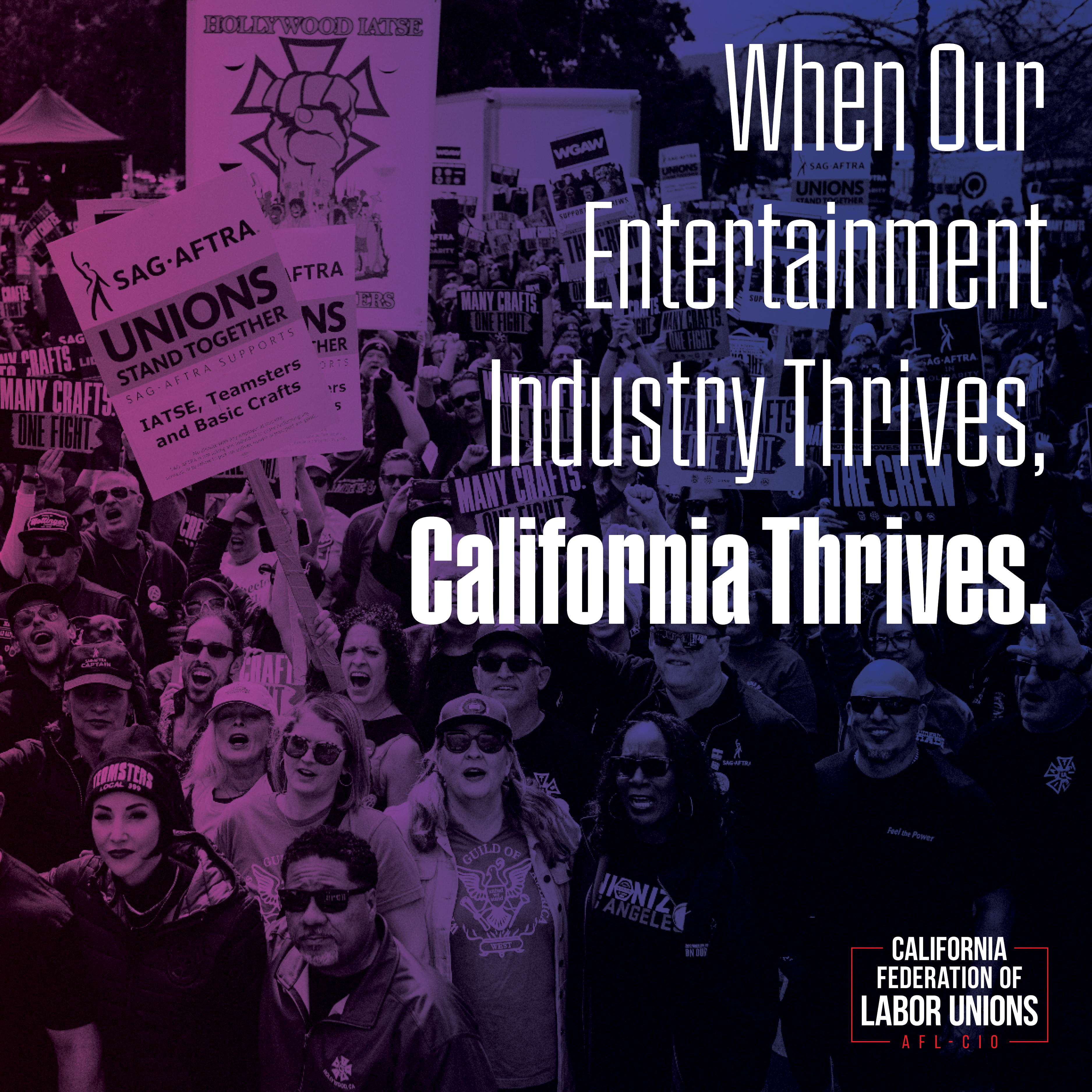|
|
It’s no secret that Hollywood is struggling. California’s film and television industry – perhaps the Golden State’s most iconic export – has been rocked over the last several years by the COVID-19 pandemic and a significant contraction in production. The industry was dealt a further setback by the wildfires that ravaged Los Angeles earlier this year. This isn’t just impacting the uber-famous we so often associate with Hollywood. It has a devastating effect on every worker in the industry: set construction workers, technicians, truck drivers, make-up artists, production assistants, extras, musicians, camera operators and countless others – solid, unionized middle class and working class jobs. The loss of film production also affects ancillary support jobs like cooks and caterers and parking attendants. The Motion Picture Industry Pension & Health Plans (MPIPHP) reported 35 million fewer hours of employment since 2022, equating to approximately 17,000 lost jobs! On top of that, the California Film & Television Tax Credit Program, which entices Hollywood to keep its productions in-state, is underfunded and out of date, meaning there are more productions applying for the credit than can be accommodated under the current cap and the structure discourages productions from staying or coming here. This has led to California losing out on film and TV productions to other states and countries that offer more competitive tax credits. If steps aren’t taken to protect California’s film industry, the unionized middle class jobs it provides could vanish for good. That’s why late last year, Gov. Gavin Newsom announced his intent to more than double the tax credit program, raising it from the current $330 million to $750 million, beginning with the 2025-26 budget. This would make California home to the largest capped film tax credit in the country, surpassing New York. It would also lead to thousands of new well-paying UNION JOBS in the entertainment industry. California’s film tax credit, first implemented in 2009, has generated more than $26 billion in economic activity and supported more than 197,000 cast and crew jobs across the state. This proposed tax credit increase has union backing! Our unions, including the California IATSE Council, Directors Guild of America, LiUNA! Local 724, Teamsters Local 399, Writers Guild of America West, American Federation of Musicians, and SAG-AFTRA – which collectively represent more than 165,000 members who live and work in California’s entertainment industry – have formed the Entertainment Union Coalition (EUC), which has launched a campaign, called Keep California Rolling, to fight for the tax credit increase, arguing that when our entertainment industry thrives, California thrives. The Legislature must debate and pass a state budget by midnight on June 15. While the governor and state lawmakers face a very difficult fiscal environment, including the potential for billions in federal budget cuts, it is critical that the film tax credit expansion be approved. Because once those entertainment jobs leave the state, they almost certainly will not return. You can help save the film industry! The Keep California Rolling campaign explains how you can take action, including by posting to social media platforms like Facebook, Instagram, Twitter/X and Bluesky with the hashtag #KeepCaliforniaRolling and tagging Gov. Newsom, the allied guilds and your local legislators! In Solidarity, Lorena Gonzalez |
|

